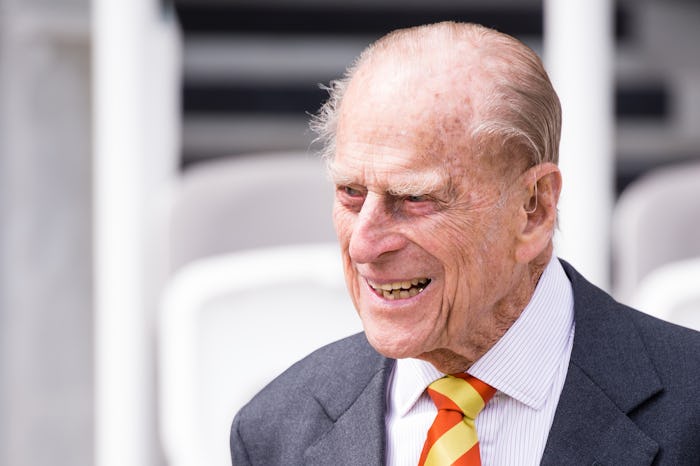News

Do Royal Family Members Usually Step Down?
On Thursday morning, Buckingham Palace called an "emergency meeting" of its staff, which sent the media in the U.K. and the U.S. into a frenzy. The palace then made an official announcement that Prince Philip, 95, the husband of Queen Elizabeth the II, would be officially leaving public life. Do royal family members usually step down? Prince Philip isn't the first to forgo royal engagements.
After the Queen called the emergency meeting early Thursday morning, the world feared the worst. As the U.K.'s longest reigning monarch, the Queen's health and age is always a headline-making topic. As it turns out, the meeting was not to discuss the Queen, but her husband, Prince Philip. After meeting with staff, Buckingham Palace formally announced that beginning this autumn, Prince Philip will be retiring from his public duties. The Queen, however, will continue with her many engagements, which often run the gamut from attending charity galas to making appearances at a number of sporting events. While the Queen and Prince Philip have traditionally attended these events together — as well as kept a separate schedule of appearances individually — starting in August the Queen will be making solo appearances.
Although he's referred to as Prince Philip, his official title is His Royal Highness, the Duke of Edinburgh — which is how he was referred to in Buckingham Palace's official statement announcing his retirement. He acquired the title when his wife — then Princess Elizabeth — ascended to the throne after the death of her father, King George VI, and abdication of her uncle, King Edward VIII. Their nearly 70-year marriage is the longest in the history of the British monarchy, as Queen Elizabeth is also the longest reigning monarch. Throughout those years, Prince Philip often accompanied the Queen on tours, engagements, and other visitations around the world as representatives of the British monarchy.
These "royal duties" are expected, to varying degrees, of each member of the royal family. According to the official website for The Royal Family, all told the Queen, her children, grandchildren and other close relatives carry out more than 2,000 engagements each year.
Royal families in other parts of the world have similar obligations, and there have certainly been cases where monarchs or members of their family have retired from public life: Queen Beatrix of the Netherlands reigned for more than 30 years, then decided to step down in 2013. A monarch may well reign until they die, but they can also give up their reign (what's called abdication) for a variety of reasons. Their health (or the health of a family member), political pressure, or even personal scandals may lead them to make the decision to recede from public life.
Perhaps most famously in the modern British monarchy was the abdication of Queen Elizabeth's uncle King Edward VIII, who briefly became King when her father died but abdicated the throne because he was in love with a woman named Wallis Simpson, who he was not allowed to marry because she was divorced. The Church of England, which is inextricably linked to the monarchy, forbade the union. It was when Edward abdicated that Elizabeth became Queen at the age of 27.
While the Queen has been giving more royal duties to her son and grandsons over the years — particularly once Prince William married Kate Middleton and the two had children of their own — she doesn't seem to be slowing down: her schedule is still jam-packed for 2017. On the same day Buckingham Palace announced Prince Philip's retirement, he and Her Majesty the Queen are both expected to attend a service and luncheon at St. James palace, according to the Royal Diary.